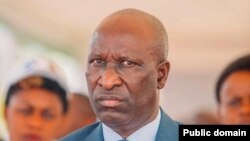"Today, the EU is lifting individual sanctions against three people, including the prime minister (Gervais Ndirakobuca)," the EU mission in Burundi announced on Twitter.
"The EU will continue to support development efforts and reforms being undertaken by Burundi."
The move is the latest sign of warming relations between Burundi and the West under President Evariste Ndayishimiye despite continued concerns about rights abuses.
Ndirakobuca, a former rebel commander who has also served as head of the feared intelligence service and as security minister, was appointed prime minister by Ndayishimiye in early September.
Ndayishimiye took power in June 2020 after his predecessor Pierre Nkurunziza died of what the Burundian authorities said was heart failure although there was widespread speculation he had succumbed to Covid.
The 2015 crisis Burundi suffered erupted when former president Pierre Nkurunziza made a controversial bid for a third term, sparking protests.
Ndirakobuca at the time was among officials accused by Brussels and Washington of stoking violence against regime opponents.
The unrest led to the deaths of 1,200 people and sent 400,000 others fleeing the country - and turned Burundi into an international pariah.
Ndirakobuca was sanctioned by both the EU and the United States as well as several other European countries, with Brussels accusing him of "acts of violence, acts of repression and violations of international human rights law against protesters."
In February, both Brussels and Washington resumed aid flows to the landlocked Rift Valley nation after easing the 2015 sanctions, citing political progress under Ndayishimiye.




